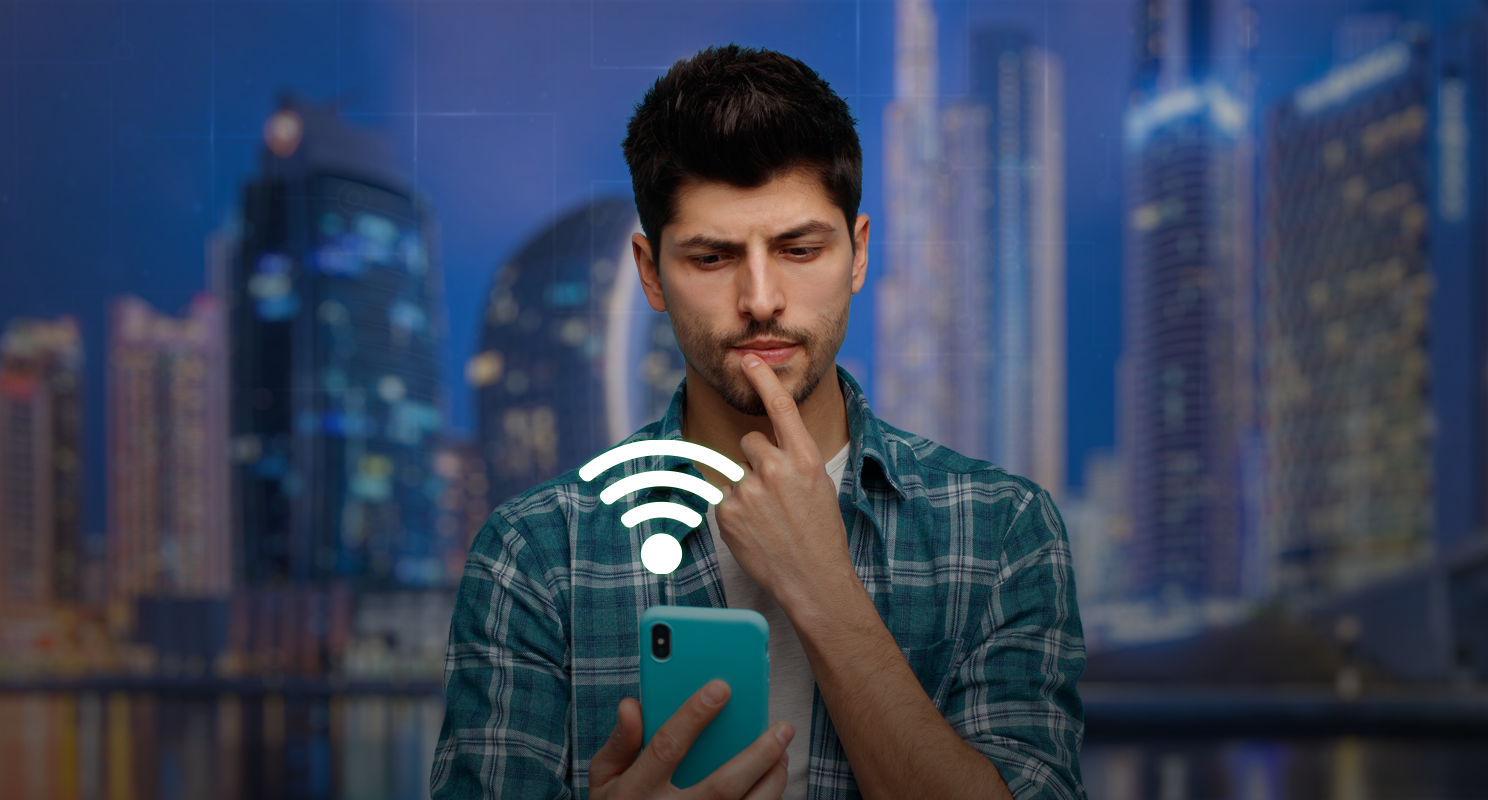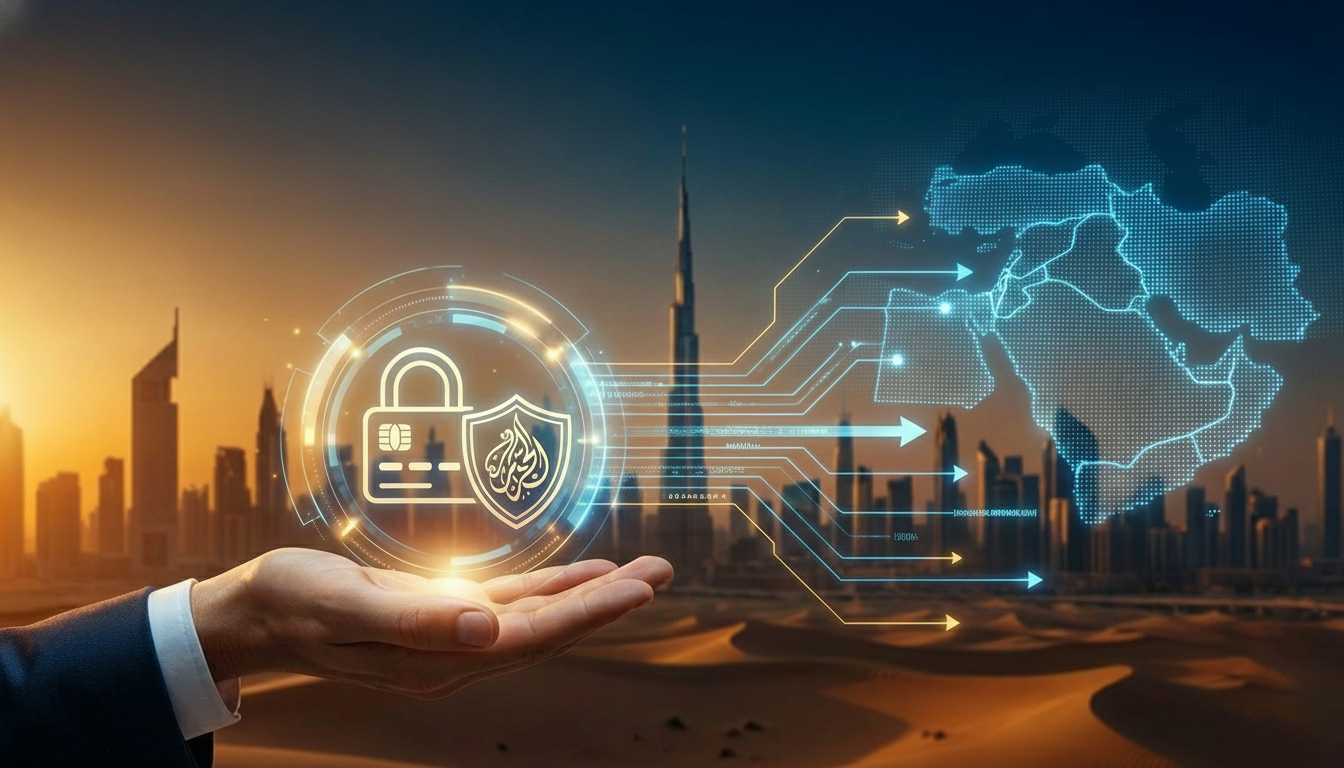Many people wait for something like Cyber Security to treat it like insurance until something is broken. Considering mobile as one of the services, having a UAE PASS as a national, digital ID, and the digital growth of cities like Dubai and Abu Dhabi, your data privacy largely relies on small, daily, and seemingly instinctive choices. That is the difference between having a pleasant day online and a disaster that will require a significant amount of your time and resources to rectify.
The Rising Cyber Threats Facing Internet Users in the UAE
The world over, the digital footprint of the United Arab Emirates continues to grow, driven primarily by the increased prevalence of remote work, smart city services, and mobile banking. Cybercriminals take advantage of this. Local and global surveys indicate that cyberattacks, particularly phishing and ransomware, are becoming increasingly sophisticated and targeting individuals and companies. INTERPOL’s regional assessment and industry monitoring suggest that overall cyber activity in the Middle East is on the rise, and so taking the most rudimentary cybersecurity steps becomes essential.
On the national level, the UAE has a cyber coordination unit, and there are public reporting channels that are in place for the police to respond to incidents. Authorities consider the taking of security measures and the reporting of suspicious activity as a civic responsibility.
8 Easy Cybersecurity Habits for Safer Online Living
Start these simple cybersecurity practices today. Each takes a minute, and collectively, they build a strong and lifelong habit. Small habits, significant protection.
1. Use multi-factor authentication, always.
Why this is crucial: passwords, when reused or compromised, are weak. An additional authentication factor stops most account takeovers.
Immediate action: enable MFA on your email, bank apps, and services linked to UAE PASS. When possible, use authenticator apps over SMS for 2FA. For services about the UAE, ensure that the UAE PASS log-in access to your digital ID is secure and that you comply with the official recommendations to safeguard your digital ID.
2. Manage your passwords like toothbrushes.
Why is this important? Weak passwords or reused passwords are cyber thieves’ open door.
If you really don’t want a manager, then start making long passphrases and besides, never reuse them between your bank and social apps.
3. Pause before you click links or attachments.
Why it matters: Phishing is the main cause of fraud and identity theft. The hackers impersonate banks as well as governments to cheat you.
Easy action for now: The link hovering is to check, confirm the sender, and, when still not sure, type the website address directly. Never respond to requests from UAE banking institutions or the government over Messenger. Use only the official app or portal to respond to requests.
4. Ensure all your software and devices are up to date.
Why? Outdated software and devices are susceptible to attack. It is simple. Phones and applications that are not current are an easy first point to attack.
Immediate, Simple Action: Set automatic updates for your primary applications and for Android or iOS. For seldom-used applications, set a monthly reminder to check and perform the available updates.
5. Secure your home Wi-Fi and use secure browsing in the UAE.
Reason: The information you send over the Internet can be spied on. Unprotected Wi-Fi will attract cyber assaults, and harmful WI-FI content will aid data exfiltration.
Then, activate Wi-Fi Protected Access (WPA3 or WPA2) on your network and hide your network. Always use a virtual private network (VPN) on public Wi-Fi, particularly when you are dealing with sensitive information like bank accounts and government accounts.
6. Verify before sharing your personal information, whether in Arabic or English.
Why it matters: Scammers make false forms in both languages to gather identity documents, and they typically target people who change their language.
Simple step now: Just don’t upload your ID documents anywhere besides official and verified portals. If a service is asking for your personal data in a chat or email, then confirm it through the official app or by calling the provider at the number given. Make sure the language setting of your app is such that prompts and warnings are in a language you understand.
7. Back up important files offline or to encrypted cloud storage
Why it matters: A virus infection and a loss by mistake can delete or lock your data. Backups will save you the cost of paying a ransom, since you will have access to your data.
Simple step you can take right now: Create a backup on an external hard drive or a trusted cloud service and conduct an annual restoration test to ensure it is functioning.
When you are not updating, the backup should be turned off.
8. Learn to spot scams and report incidents quickly.
Why it matters: Quick reporting can minimise harm, help authorities track the campaigns, and protect others.
Simple step now: If you detect fraud or a breach, the reporting channels for incidents in the UAE and your bank’s hotline for fraud are the best first step. Incident reporting in the UAE is handled through the national authorities and is directed by the Telecommunications and Digital Government Regulatory Authority.
Transitions & Flow
Begin with the small wins: MFA and unique passwords. After this, integrate your network hygiene and backups. For now, ensure that your instincts are ready. These habits, alongside the other online safety habits you have, form a reasonable line of defence that evolves with your digital life. Small habits, big defence.
Conclusion
Good cybersecurity is definitely not a “done” project type; it is a daily cycle. WebCastle Dubai assists corporates as well as people in transforming their cycle into strong security. If you are looking for a quick security check, a security consultation for yourself, or a managed security plan for your small business, get in touch with WebCastle for an easy and helpful security check and clear next steps.
Don’t put off changing your behaviour one little bit at a time. Those consistent small habits are the ones that prevent huge problems in the future. Little habits, big protection.















































































































































